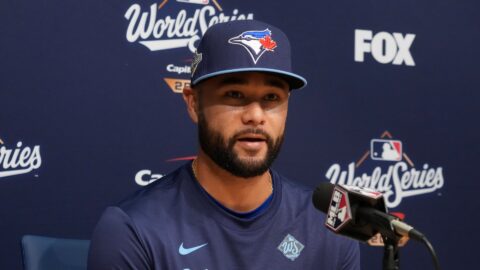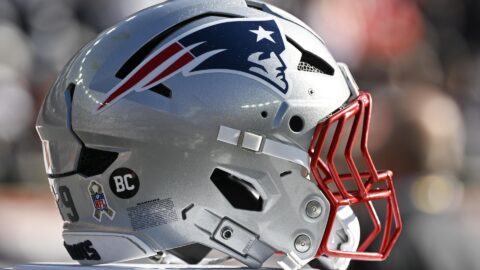The Red Sox have owned the Angels over the past few years, but nobody would’ve known from the way Thursday night played out. After winning in impressive fashion against Boston’s No. 1 starter, the Halos have to be considered a strong favorite to win the series, right?
Not so fast.
The Angels have long been known as a team fueled by pitching and the aggressive managerial style of Mike Scioscia. But this season, it wasn’t small ball that got them into the playoffs. It was on-base percentage and power — in other words, pure offense.
The Halos were third in the majors with a .350 OBP during the regular season (after they finished 18th with a .330 mark in 2008), and they scored the second-most runs in the big leagues by plating 883 — or 118 more than they did in ’08, when they finished 15th in the majors.
But look up and down the lineup: Which of these guys scare you?
The heart of the Angels’ order is old. Bobby Abreu (35 years old), Torii Hunter (34) and Vladimir Guerrero (34) are all well past their primes. They can’t always turn on fastballs the way they used to, and that much is evident in each of their home run totals this year (15, 22, 15, respectively). Pounding them inside and finishing them off away or with a breaking ball is a simple strategy, but it works, and it’s important to execute — as Hunter proved on Thursday, when he launched a fastball over the middle of the plate for a long home run.
Further down in the lineup, there are only more question marks. Juan Rivera has some pop, but his .332 OBP leaves something to be desired. Howie Kendrick has the same problem, except without the power.
Scioscia loves light-hitting catcher Jeff Mathis, even though Mike Napoli is a much bigger threat at the dish — especially against lefties, against whom he’s hit .330 with a 1.023 OPS this year. And then there’s Erick Aybar, whose career high in home runs is five.
Of course, that conveniently leaves out Kendry Morales, who has filled in for the departed Mark Teixeira remarkably well. But despite Morales’ striking numbers — .306 average, 34 homers, 104 RBIs — he has plenty of weaknesses.
He, like most of the Halos’ lineup, is susceptible to the inside fastball, and his track record against upper-tier pitchers is poor. Of his 34 dingers this season, only one has come against an All-Star (Justin Verlander), and that was his very first long ball of the year way back on April 22. Against Josh Beckett, whom he will face in Game 2, he’s 0-for-7 with three strikeouts this season.
When you boil it down, the key to limiting the Angels’ prolific offense is throwing heat and hitting spots. They tend to struggle against flamethrowers, and that’s just what the Red Sox happen to have plenty of — both in the rotation and the bullpen.
As long as Boston’s hurlers can keep their composure and limit their walks against the Halos — particularly considering the Angels’ speed and the Red Sox’ ineptitude at throwing runners out — they are easily capable of handling the Angels’ lineup.
The real concern for the Red Sox shouldn’t be keeping the Angels’ hitters at bay; it should be getting on base and scoring runs themselves. After getting shut out by John Lackey in Game 1, Boston will face yet another difficult test in Jered Weaver on Friday night. Weaver’s numbers this year have been better than Lackey’s in almost every category — including ERA, WHIP and strikeouts.
It’s almost a given that Beckett, who boasts a 2.90 postseason ERA, is going to toss a strong game against the Angels. But ultimately, it will be up to the Red Sox’ batters to string together timely hits and put up some crooked numbers on the scoreboard.
If they can’t do that, they’ll be headed home a bit sooner than expected.



